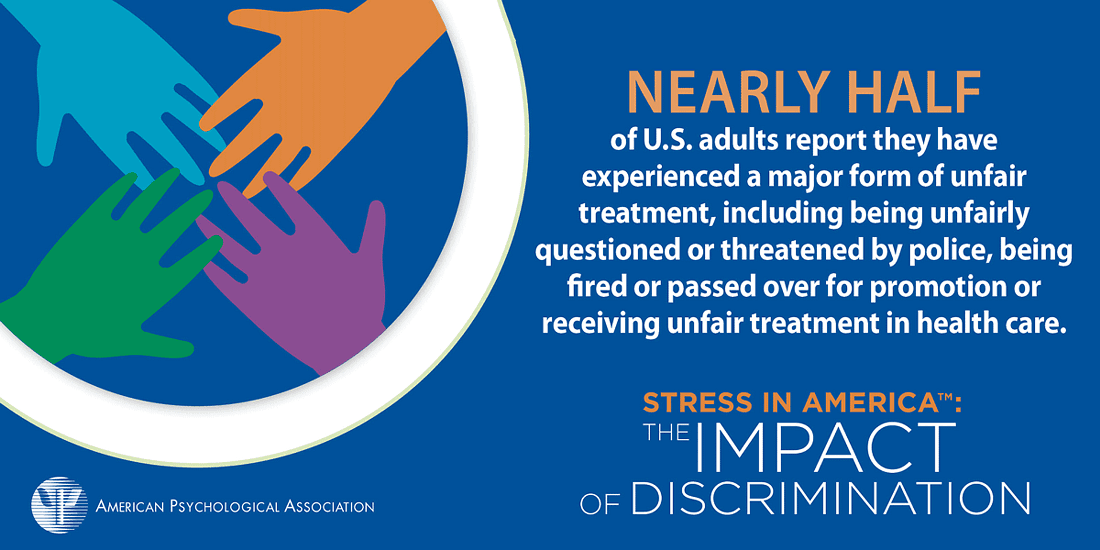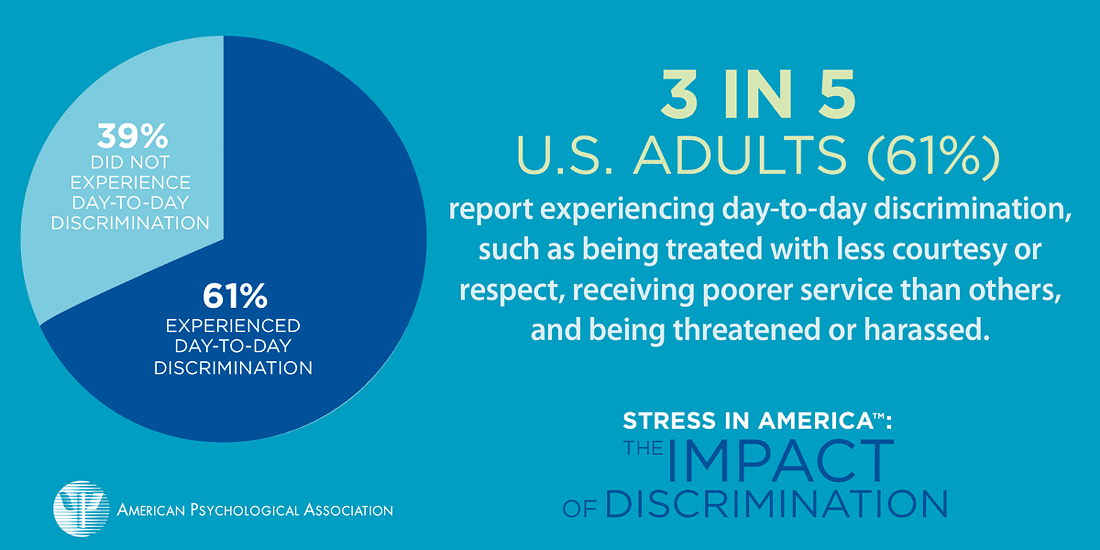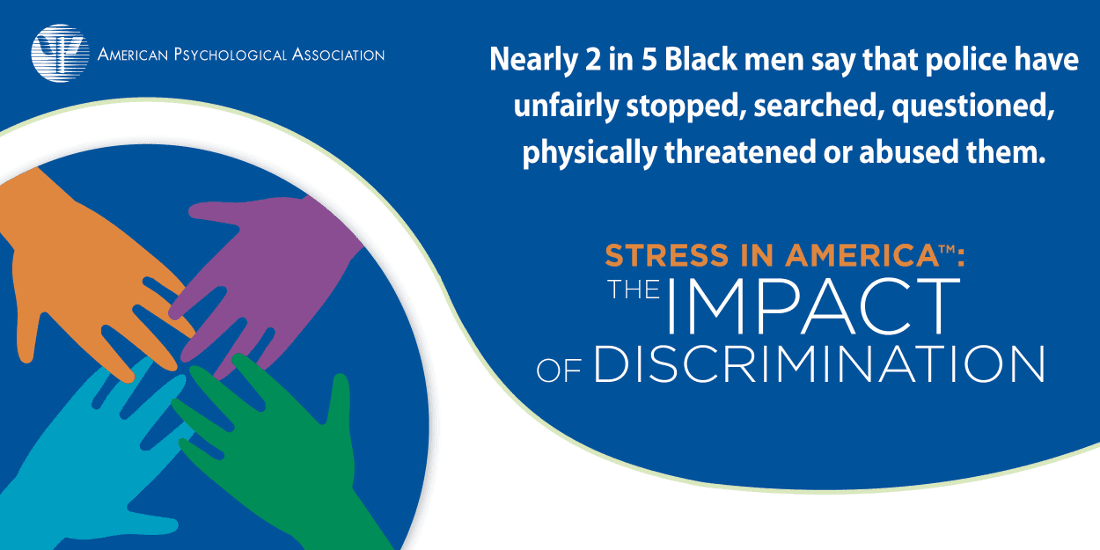Practice
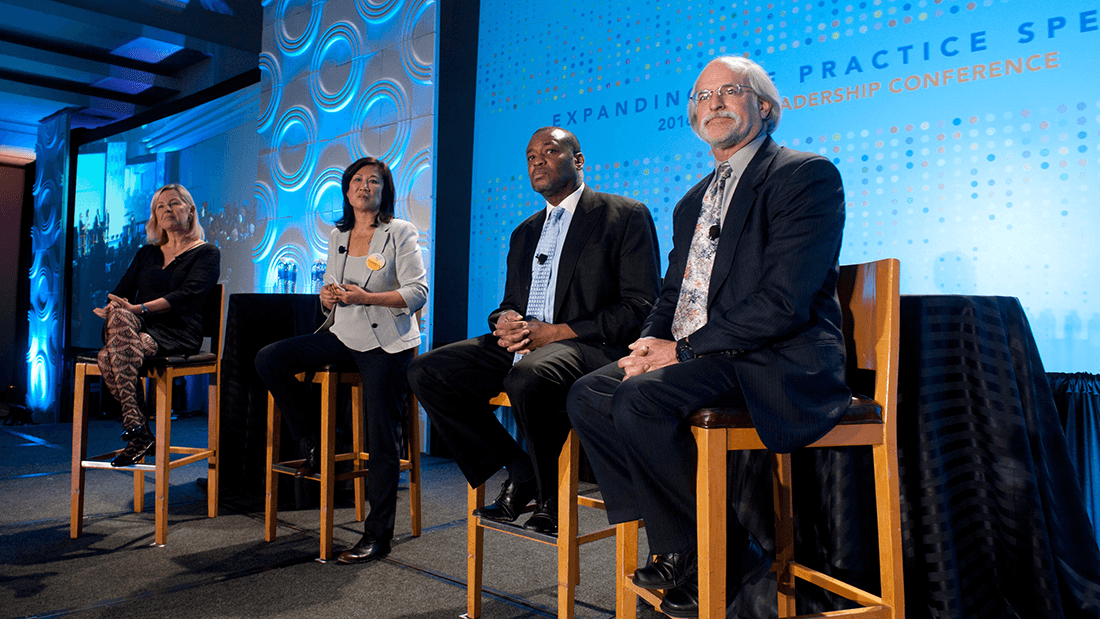
The Practice Directorate had another busy year advocating for the accessibility and availability of mental and behavioral health services and promoting the benefits of psychology to the public. The directorate’s advocacy efforts included visits by psychologists to U.S. Congressional representatives to ask for better federal funding for mental health care and letters to the president-elect and House and Senate leaders requesting continuation of the mental health and substance abuse benefits of the Affordable Care Act. Our annual Stress in America Survey had two parts this year: one that looked at the impact of discrimination and stress, and another that examined American’s stress related to the 2016 elections.
The Practice Directorate is also charged with leading the Practice Organization, a legally separate companion organization that advances the professional interests of psychologists across all practice settings.
Photo above: Panelists at the 2016 State Leadership Conference field audience questions on how they and their patients can thrive in the changing health care marketplace. From left: Nancy Breen Ruddy, PhD, McCann Health; Shirley Ann Higuchi, JD, APA and APA Practice Organization; Arthur C. Evans, PhD, commissioner of Philadelphia’s Department of Behavioral Health and Intellectual disAbility Services [now APA’s CEO]; and Geoffrey Kanter, PhD, ABN, ABPdN, Comprehensive MedPsych Systems, Inc.
State Leadership Conference
Leaders from state, provincial and territorial psychological associations (SPTAs) came back to town in the spring for the directorate’s annual State Leadership Conference (SLC) — “Expanding the Practice Spectrum.” Presentations featured psychologists embracing innovative work models that expand the availability of psychological services.
Conference participants traveled to Capitol Hill to meet with their congressional representatives and advocate for the Helping Families in Mental Health Crisis Act that ultimately passed into law in December as part of the 21st Century Cures Act. This legislation helped to better coordinate federal funding for mental health care. In addition, the directorate sent letters to the president elect and House and Senate leaders in December to advocate for continuing the Affordable Care Act’s mental health and behavioral health coverage.
SLC Welcome Address
Practice Organization
In addition to its public-focused work, the Practice Directorate is also charged with leading the Practice Organization, a legally separate companion organization to APA. The Practice Organization supports practitioners in ways APA cannot due to IRS regulations. It advances and protects the professional and economic interests of practicing psychologists across settings. Some highlights of 2016 include:
- Mobilized psychologists to advocate for the bipartisan Medicare Mental Health Access Act (HR4277/S2597) so that psychologists can treat Medicare patients free of unnecessary physician supervision in medical settings.
- Created and presented programming on integrated care and innovative practice models, sparking psychologists’ interest in new career opportunities.
- Fielded inquiries from more than a thousand members and psychology leaders about legal, licensing, business and policy issues.
- Defended state licensing laws and scope of practice through $250,000 in grants to strengthen small state psychological associations.
- Provided comprehensive feedback to the Centers for Medicare and Medicaid Services, advocating for psychologists to receive fair and appropriate reimbursement for their services and for their participation in Medicare’s quality performance programs; Medicare payment rates set the insurance industry standard and have a powerful impact on reimbursement in all health care settings.
- Raised money through the bipartisan Psychology PAC to support candidates for congressional office who stand for the profession.
Please visit the Practice Organization website for more information.
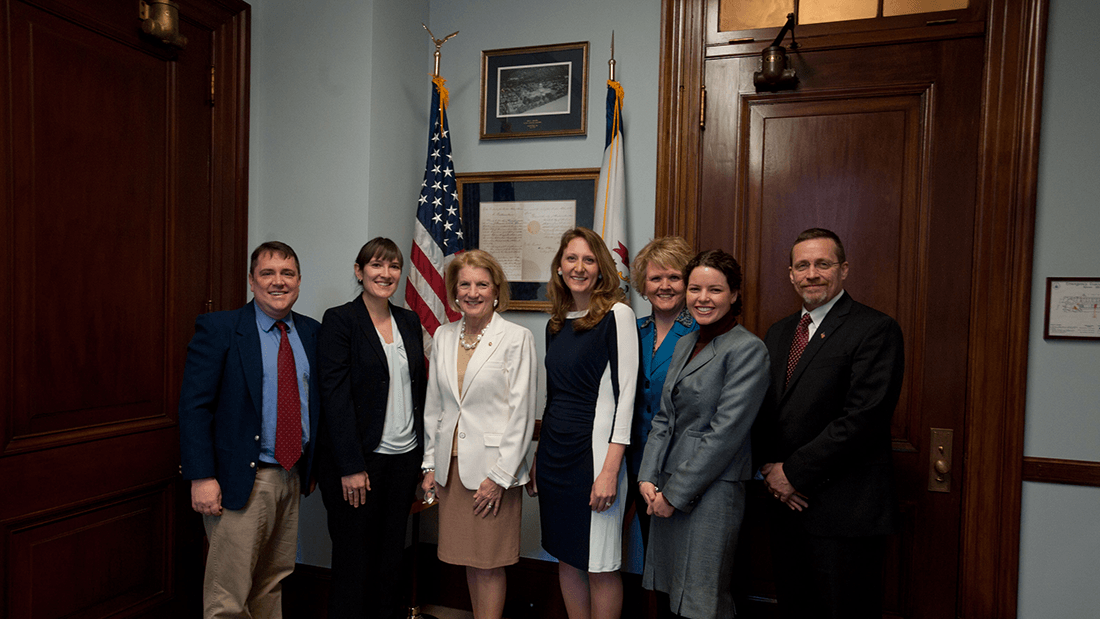
Senator Shelley Moore Capito with members of the West Virginia Psychological Association
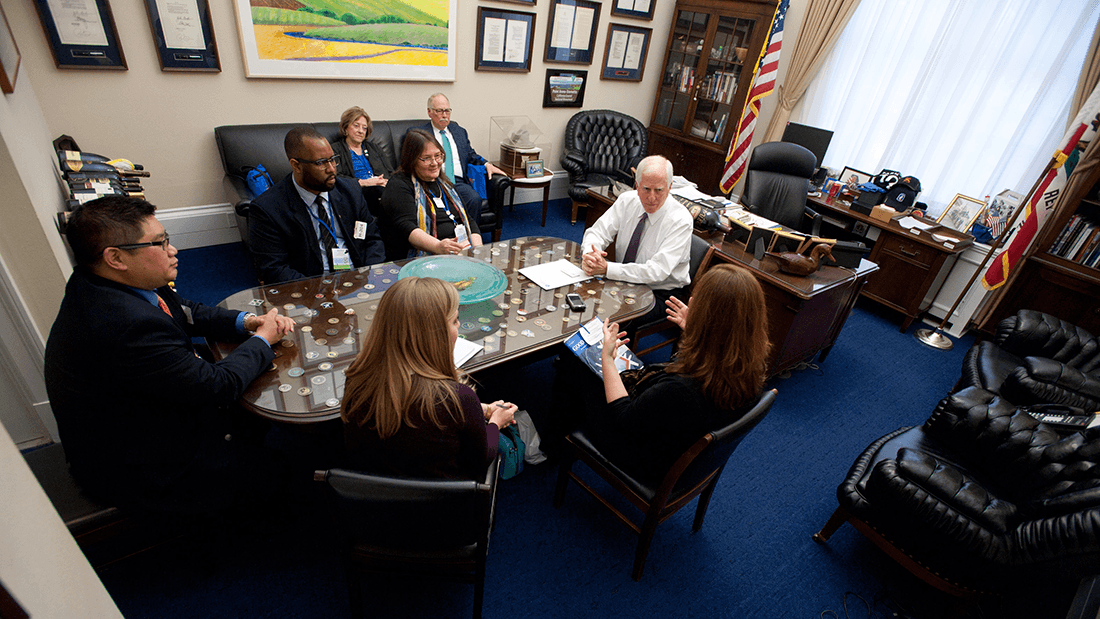
Rep. Mike Thompson (D-Ca.) meets with members of the California Psychological Association
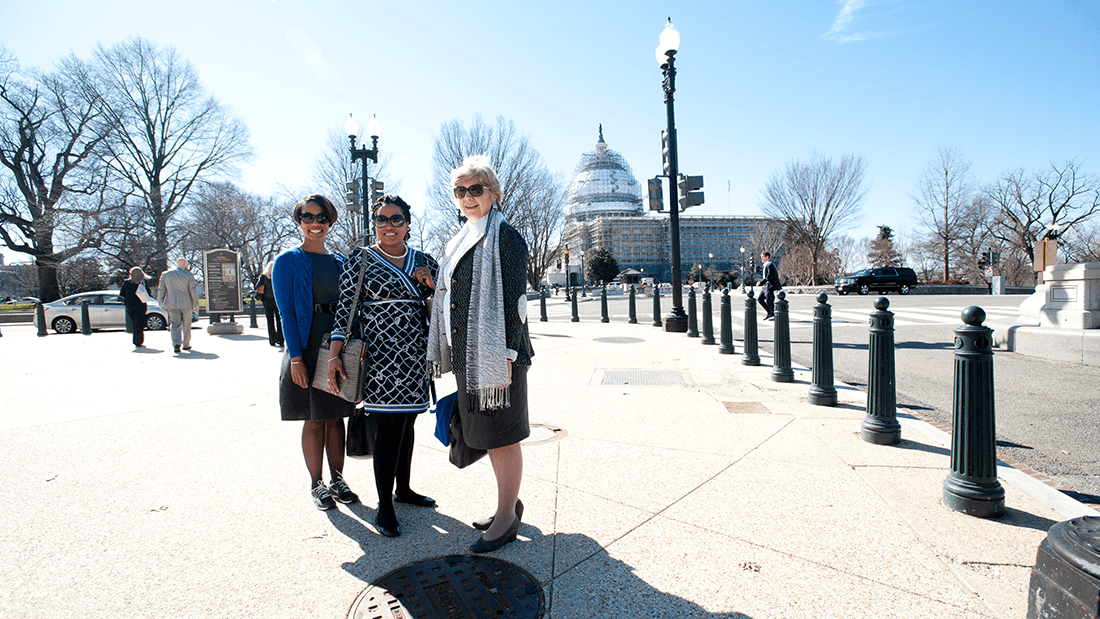
Members of the Georgia Psychological Association, ready for the Capitol Hill visit
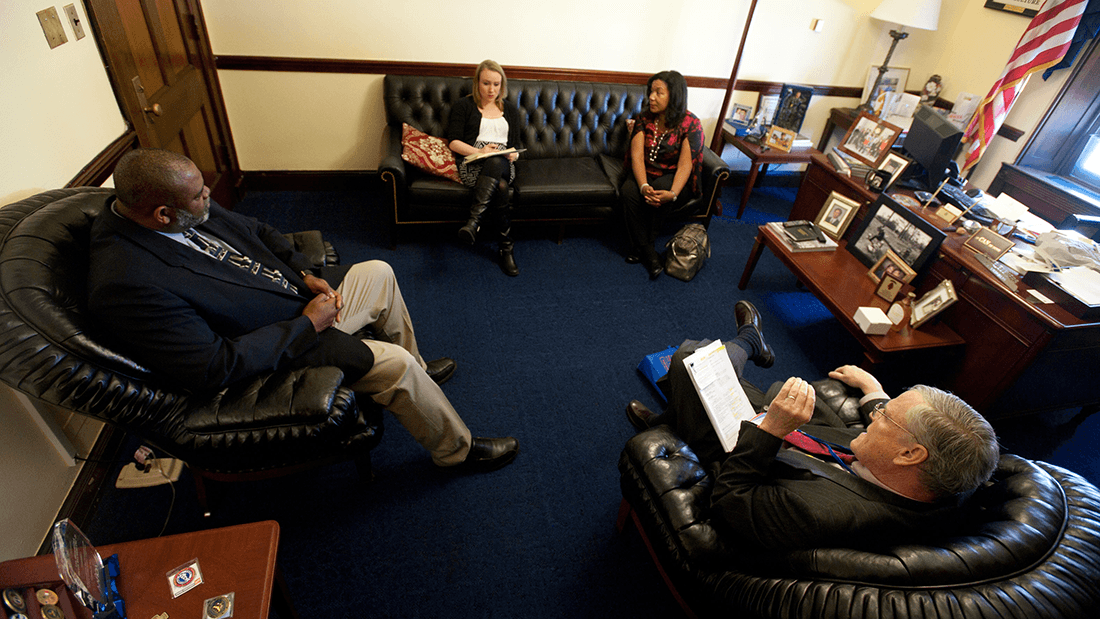
Laurel Stine, JD, and members of the North Carolina Psychological Association meet with their representative
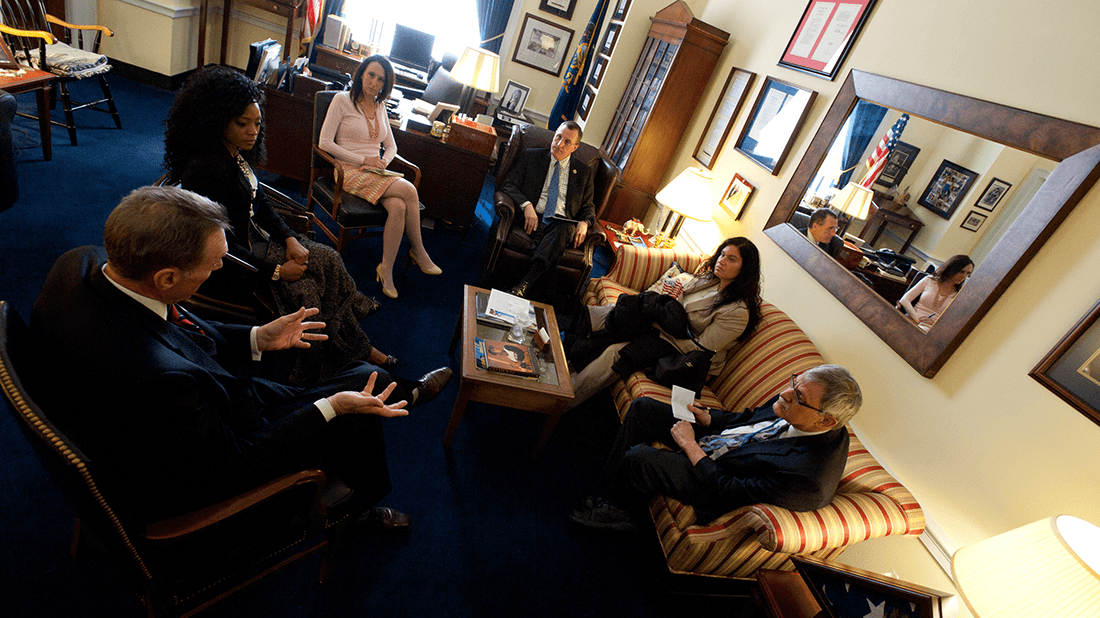
Rep. Tim Murphy (R-PA) meets with members of the Pennsylvania Psychological Association
Clinical Practice Guidelines
Clinical practice guidelines are widely used in determining health care practice — from the perspectives of policymakers and payers to those of clinician–patient dyads. APA has been working for the past seven years to develop evidence-based clinical practice guidelines in the areas of posttraumatic stress disorder (PTSD), depression and obesity and is actively collaborating with other organizations in future guideline development.
To create the guidelines, an interdisciplinary panel of experts conducts extensive, systematic reviews of available research and translates the research into information that clinicians can use in diverse practice settings. The guidelines also help consumers weigh treatment options. The draft of the PTSD guidelines went out for public comment in 2016; the guidelines will be released in 2017.
It is far better for psychology to be in the driver's seat when it comes to figuring out what guidelines for psychological and behavioral problems are needed than waiting for someone else to do it
—Lynn Bufka, PhD, Associate Executive Director for Practice Research and Policy, APA Practice Directorate
Psychology Internships
The Practice and Education directorates have been working with SPTAs to create more internship opportunities and facilitate the full inclusion of psychologists in state Medicaid programs. Because Medicaid is a federal program run by each state, this initiative requires a state-by-state analysis and strategy. We have used a three-pronged approach to seeking reimbursement for:
- psychologists in independent practice
- Health & Behavior CPT codes (H&B codes)
- services provided by doctoral-level psychology interns
These three provisions are closely linked: Interns have greater opportunities with psychologists in independent practice who are available to supervise them, and access to H&B codes gives interns training in primary care and other medical settings, building the workforce needed to address the behavioral health needs of the expanded Medicaid population.
To solve these barriers to psychological services in Medicaid and help correct the internship imbalance, the Practice and Education directorates created a Policy and Advocacy fellowship funded through the APA Grants for Internships Program. Since the fellowship began, we have worked in over 10 states to remove the barriers to independent practice of psychology, use of H&B codes and intern reimbursement.

Legal and psychology experts at the State Leadership Conference discussed the full inclusion of psychologists and interns in state Medicaid programs. Left to right: Stacey Larson, PsyD, JD; Catherine Grus, PhD; Shirley Ann Higuchi, JD; Caroline Bergner, JD; and Lindsey Buckman, PsyD.
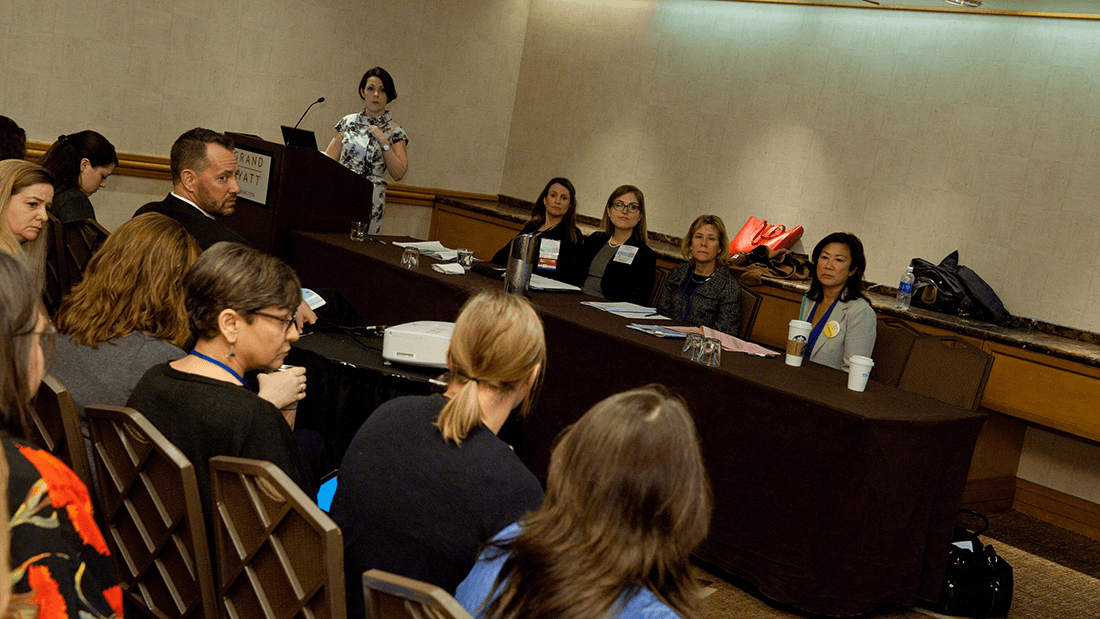
Dr. Lindsey Buckman moderates a panel of APA experts on the expansion of internship opportunities and full inclusion of psychologists in the Medicaid system.
Stress in America
The directorate launched two surveys and sets of findings in 2016. In March, Stress in America™: The Impact of Discrimination was released. According to survey results, nearly half of U.S. adults reported they experienced a major form of unfair treatment or discrimination. These acts of discrimination were associated with higher reported stress levels and poorer reported health. For many adults, even the anticipation of discrimination contributes to stress.
The press release alone for this survey was picked up by 201 media outlets, generating 12 million impressions.
In October, a press release on election stress previewed data from an upcoming Stress in America™ poll. It showed that 52 percent of American adults reported that the 2016 election was a very or somewhat significant source of stress, regardless of party affiliation. APA developed a fact sheet on how to manage stress and family discussions about the election.
The survey data garnered more than 4,000 media hits, generating more than 330.4 million impressions. The coverage was estimated at more than $10.7 million in ad value (equivalent to two 30-second Super Bowl commercials). Media outlets included The Washington Post, The New York Times, USA Today, Huffington Post, The Wall Street Journal, NBC Nightly News, ABC News, CBS News, CNBC and NPR.




